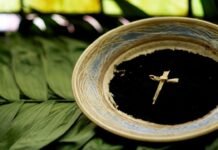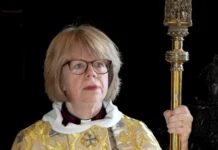Some years ago, there was a series on Radio Four entitled ‘Things we forgot to Remember.’
Each episode explores an episode in history that most of us have forgotten. Like, for instance, the English Armada of 1589.
Most of us remember the Spanish Armada of the year before. It is still taught about in school.
But very few of us know, and are surprised to learn, that the following year we sent a fleet of comparable might to invade Spain, and, unlike the Spanish, actually landed troops.
Or how a disastrous colonial expedition to what is now Panama, was one of the main reasons behind the 1707 Act of Union, which united England and Scotland.
Or forgotten bits of the story of the Boston Tea Party, the Suffragettes, and the post-war Labour government.
And so on.
This leads me to reflect on some of the things in our own history and tradition, we may have forgotten to remember, or may be in danger of not remembering.
Here are three that seem to me to be particularly relevant at the moment.
1. We cannot choose our fellow disciples.
The church is the body of Christ, and the elbow cannot say to the hand, I don’t need you (see Romans 12. 4-8 & 1 Cor. 12. 12-27). And the lesser parts of the body should be given the greatest honour. And whether we like it or not, we are called to love one another, despite our disagreements, and called to model to a very easily-divided world a different way of handling disagreement. In fact, it is by this love for one another that people will know we are disciples of Jesus. (see John 13. 34-35).
2. The Bible itself gives us the interpretative framework for addressing issues where clear and obvious answers elude us.
The Bible is a library, not merely a book. It contains different kinds of truth. So, when the first Christians encountered the questions of a different culture, easy and obvious answers were not always available. Consequently, and for example, many of them genuinely thought that in order to be a Christian, you had to be a Jew first, and therefore Gentile converts to the way of Christ would have to be circumcised before they were baptised. It is what they had been taught. It was what they knew from their scriptures. But now their experience and the questions and lived experience of new believers challenged that.
How do we know this? Well, from the bible itself. We can read about it in Paul’s letters (Galatians 2. 11-21) and in the Acts of the Apostles (see, for instance, Acts 11. 1-18 & 15. 1-35).
By a combination of prayerful reflection, reasoned debate, and a profundo searching of the whole narrative of the Scriptures, they were led to the momentous declaration that in Christ there is a new humanity where Jew or Gentile, slave or free, man and woman are reconfigured, and where one is not superior to another (see Galatians 3. 26-28). Through this combination of revelation, reason, scriptural investigation and theological imagination, the possibility of the missionary expansion of the church to the whole of humanity opened up. It is not an exaggeration to say we would not be here in this diocese or this Synod if it wasn’t for this development of doctrinal understanding around what it means to be a new humanity – made in the image of God and made whole in Christ; one where difference is handled differently.
So, it has been throughout church history. And it is often the observed lived experience of Christian people that made a difference. This was true of great doctrinal debates such as between Arius and Athanasius on the subject of the incarnation. And then in more recent times on ethical issues such as divorce and re-marriage. And note this is not merely subjective experience (what ‘I feel’ or what ‘I think’) but observed lived experience, the goodness and faithfulness that we see and acknowledge in the lives of Christian people which cohere with the signs and work of the Holy Spirit (again biblical example can be found in Acts 10, 11 & 15)
It also follows that when we face the questions our culture poses us today – I’m thinking obviously of issues around gender and sexuality, but not just those issues – the Bible itself gives us interpretative biblical framework within which we can begin to discern possible ways forward.
Not ‘anything goes’, but ‘everyone counts’.
It may be helpful to point out that wherever we stand (and there are many different views across our diocese) on General Synod’s resolution to encourage the House of Bishops to refine and then issue prayers of love and faith to use with same sex couples in stable and committed relationships, we are all agreed that there is no place for homophobia in the church. Therefore, it logically follows that we have all reached the conclusion that whatever our views on homosexuality and same sex relationships, these are people that we long to welcome into the life of the church. What we disagree on is the form that welcome should take. And in understanding what path to take, we are all drawing from and being guided by the same scriptures and with the same faithfulness to scripture and seeking the mind of Christ; not following the whims and fancies of our culture but engaging faithfully with the questions it poses and the faithfulness we see in the lived experience of faithful same-sex Christian couples.
It might also be worth pointing out here that because part of the challenge that this raises is how we can live together with conscientious disagreement on this, the Church of England and House of Bishops have embarked on three critically important pieces of work before the prayers are commended for use –
- Revision of the prayers themselves in the light of comments received
- Pastoral guidelines for clergy and lay ministers in same sex relationships (and other related matters)
- Pastoral reassurance for those who will not use the prayers, and for those for whom this direction of travel has caused deep pain and confusion, i.e. actual provision to enable all of us, whatever our particular views on these prayers (and what they may or may not signify) to have a place in the one Church of England. I want you to know that I am deeply personally committed to this, and I am delighted that Bishop Eleanor is part of the national group that will take this forward.
Moreover, in the Diocese of York we decided this week to appoint a small group of LLF chaplains to be available for anyone needing pastoral support at this time. The chaplains will represent the full range of views on these issues.
3. You can tell a tree by its fruit (see Matthew 7. 16-20).
And, incidentally, Jesus says this as a deliberate way of helping the disciples to discern between true and false prophecy.
However, in the end, the criteria by which we will be judged, is not doctrinal orthodoxy, because many of us – probably most of us – will from time to time, and even with the very best intentions, gets things wrong, but by our love.
The parables of judgement towards the end of Matthew’s Gospel (Matthew 25. 1-46) speak to us about our readiness to greet the Lord when he comes (the parable of the wise and foolish bridesmaids); a willingness to use the gifts we’ve been given to the very greatest effect (the parable of the talents); our ability to see and serve Jesus in those who are in need (the parable of the sheep and the goats).
And if you’re not sure whether something is of God, or whether it will bear fruit, Gamaliel has a word to the wise: that we prayerfully wait and see whether the fruit comes.
Things take time. Trees are fruitful in due season. There is winter as well as spring. But if things are of human origin, they will fail. But if they are of God, nothing will be able to stop them (see Acts 5.33-40).
I speak to myself as much as to any of you this morning, when I say that we would be wise to remember these things, not just as we navigate the slightly choppy waters that LLF has created, but also, with regards to how we live Christ’s story, and navigate the changes and take hold of the opportunities that are before us as we try to become more like Christ, reach out to people who do not yet know Christ, grow churches of missionary disciples, which are younger and more diverse, and work to transform our finances and structures, so that there can be a sustainable and flourishing ministry everywhere.
Much has been achieved in the past year through the deanery plans that are now being looked at in the round, but there will be fresh challenges ahead.
We live in a world, where so many do not know Christ. Those of us, who do know Christ, need to love one another, and work hard in the service of the world Christ came to save.
Finally, with the coronation of a new king almost upon us, could I invite all of us, and all our churches: this is an opportunity to look outwards, to pray for our King and government and its good ordering, and to use all the opportunities before us to preach and teach the love of God, which is in Christ Jesus.




[…] Archbishop of York Stephen Cottrell seemingly made oblique reference to GAFCON in his presidential address to the York […]
[…] talk about the “missionary expansion of the church to the whole of humanity,” he said, addressing the York Synod. The goal is to consider “not merely subjective experience (what ‘I feel’ or what […]